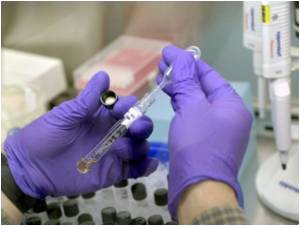Immune cells exhausted from infections can be revived by the introduction of fresh cells that act like coaches giving a pep talk, reveals study.

Senior author Rafi Ahmed's laboratory has extensive experience studying mice infected with lymphocytic choriomeningitis virus (LCMV). Immune responses against LCMV are driven by CD8 or "killer" T cells, which destroy virus-infected cells in the body.
Merely a few weeks after exposure to LCMV, the mice develop a chronic infection that their immune systems cannot shake off, similar to when humans are infected by viruses like HIV and hepatitis C.
Rachael Aubert, Ahmed and their team from Emory Vaccine Center examined what happened to mice chronically infected with lymphocytic choriomeningitis virus (LCMV) when they infused CD4 or "helper" T cells from uninfected mice.
After the infusion, the CD8 cells in the infected mice revived and the levels of virus in their bodies decreased by a factor of four after a month. Like coaches encouraging a tired athlete, the helper cells drove the killer cells that were already in the infected mice to emerge from exhaustion and re-engage.
The cell-based treatment was especially effective when combined with an antibody that blocks the molecule PD-1, which appears on exhausted T cells and inhibits their functioning. The antibody against PD-1 helps the exhausted T cells to revive, and enhances the function of the helper cells as well: the combination reduced viral levels by roughly ten-fold, and made the virus undetectable in some mice.
Advertisement
The researchers found that the helper cells were all genetically engineered to recognize LCMV, a difference between mouse experiments and potential clinical application. However, it may be possible to remove helper T cells from a human patient and stimulate them so that all the cells that recognize a given virus grow.
Advertisement
The study has been published in Proceedings of the National Academy of Sciences Early Edition.
Source-ANI










